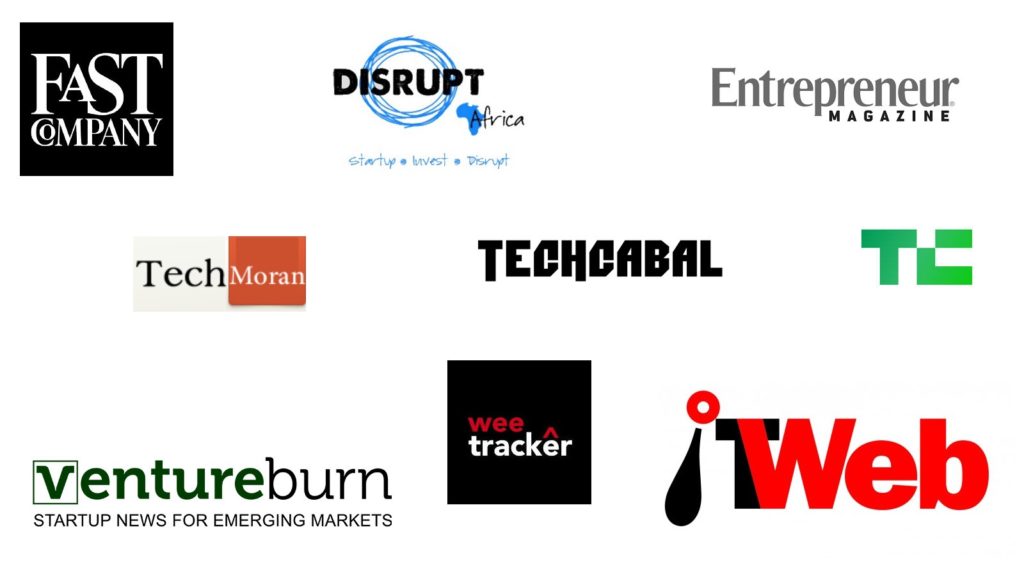We all have them. Those apps we open without thinking. Not because we need anything in particular, but because they feel… safe, in some…
Why Africa needs more critical media to cover lively tech startup sector [Opinion]

A day doesn’t seem to go by without news of another big deal in the tech startup sector in Africa. In a continent where war, famine and corruption have long grabbed the headlines, the nascent tech startup sector is a ray of light.
Yet the lack of critical media and indepth coverage on the startup sector (or on small business in general) has helped forge the myth that tech entrepreneurship is little more than something fun and playful that those who can’t get a real job get into. Too often media only highlight the glam of the sector — making it look like a scene from a hiphop music video when a deal is closed for millions.
What you won’t find on many web publications and magazines that cover the continent’s tech startup sector are the messy details of how some founders risked everything to startup their business.
Neither will you find enough on the numerous mistakes entrepreneurs have made along the way — or how they butted heads with a fair share of competitors, colleagues and fellow founders, many of whom just didn’t buy into their vision (or so they would claim).
And if there were shady investors involved? Or even how they got a nice step up to opening the business (perhaps because they belonged to a well-connected family)? You probably won’t hear about those either.
What then accounts for this overly optimistic view of startups?
Entrepreneurs selling their story
A lot of it admittedly is down to entrepreneurs themselves.
As it’s so hard to run a business those that chose to strike it out alone often have to have enormous amounts of energy and confidence just to keep going. Much of this is spent on convincing others to believe in their idea as much as they do — business partners, employees, clients and the government.
It’s why many hire PR agents to bolster and sell this message to the public. There are literally thousands of small PR teams that work for startups, pushing out press releases to everyone from mainstream media to blogs and ezines.
Many of these publications have simply become extensions of the startup’s themselves — publishing press releases word-for-word without so much as questioning a single thing contained in these releases.
With an increasingly number of news rooms under strain from staff cuts, many eagerly go with whatever they are fed — particularly when they didn’t have to pay a cent for it in the first place.
This is wrong.
To get a true picture of the sector often demands critical questioning to ascertain things such as how well a company is performing when it comes to revenue or how big a deal was, or what the name of the angel investor behind a deal was.
These are the kind of questions that must be asked, even if it makes some in the sector uncomfortable.
It’s not just startups themselves that should come under scrutiny. The organisations involved with supporting them should too — including angel investors, venture capitalists, accelerators, the government, banks and co-working sites to name just a few.
If the sector is to create real value — jobs, exports and revenue — how are those in the sector doing this? Have they only succeeded in enriching a few well-educated and well-off people, or are ordinary citizens and entrepreneurs from underprivileged backgrounds benefiting too?
These are tough questions that must be asked.
Role of independent media
When a publication like Ventureburn, which writes on the tech startup sector, runs a story that for instance questions a startup’s business model or where they got their funding from, its journalists are often labelled as “killing the sector”.
The excuse many startups or those in the sector use to get journalists on their side is that “we should all partner together” and that the role of startup-focused media is to only publish stories that “support startups”.
The role of media is not to make everyone feel like one big happy family, holding hands around the fire and singing kumbaya.
This is where startups have it wrong. The role of independent media is not to write only positive stories. Critical stories also have a role — for if anything they show the good and the bad, what is working and what is not and to never shy away from voicing what is wrong or questionable.
And just because they might be running a startup, doesn’t make entrepreneurs less open to being criticised than had they been running a massive listed company.
Asking critical questions
Startup media needs to ask critical questions that effect their respective ecosystems.
In Africa that means things such as the large number of expat founders that clinch VC funding over local entrepreneurs (see this story) or how red tape, corruption and a lack of infrastructure contributes to holding back the tech sector in places like Nigeria (see this story) and South Africa.
In South Africa the tech sector is dominated by a rich (mainly white male) elite. The country has one of the highest inequality rates in the world, yet not enough startups are aimed at tackling the country’s many economic and social ills. These and other things are important issues that the media should cover.
Above all, the media needs to delve into the real struggle it takes to launch a company and what it really means to be an entrepreneur (a word in South Africa that is often misunderstand — even a Big Issue vendor is an entrepreneur these days, while Silvertree Holdings head refers to the founders of companies he’s bought out as “co-entrepreneurs” – see here).
Startups and industry players (“the ecosystem” as it’s often called) must understand that the media is not there to serve their individual business interests — but rather to detail the diverse and complex world of tech startups. This include both the ups and the downs of running a business.
All the more so, in the tech sector, which is often a secretive one full of silent angel investors and undisclosed funding amounts. The sector could benefit from more accurate information — on things such as deal size and who funded whom.
Better information can help build a better business acumen and lead to wiser investment decisions — which could ultimately benefit all entrepreneurs, funders and those who support them. This could help undo the myth that tech entrepreneurship is all just fun and games.
It’s business after all. And business is a serious thing — even if you are having fun doing it.
This piece was sponsored by Leaderex (Ventureburn always discloses advertised content). Stephen Timm will take part in panel discussions at the Leaderex summit at Sandton Convention Centre on 4 September. See the full programme here.

